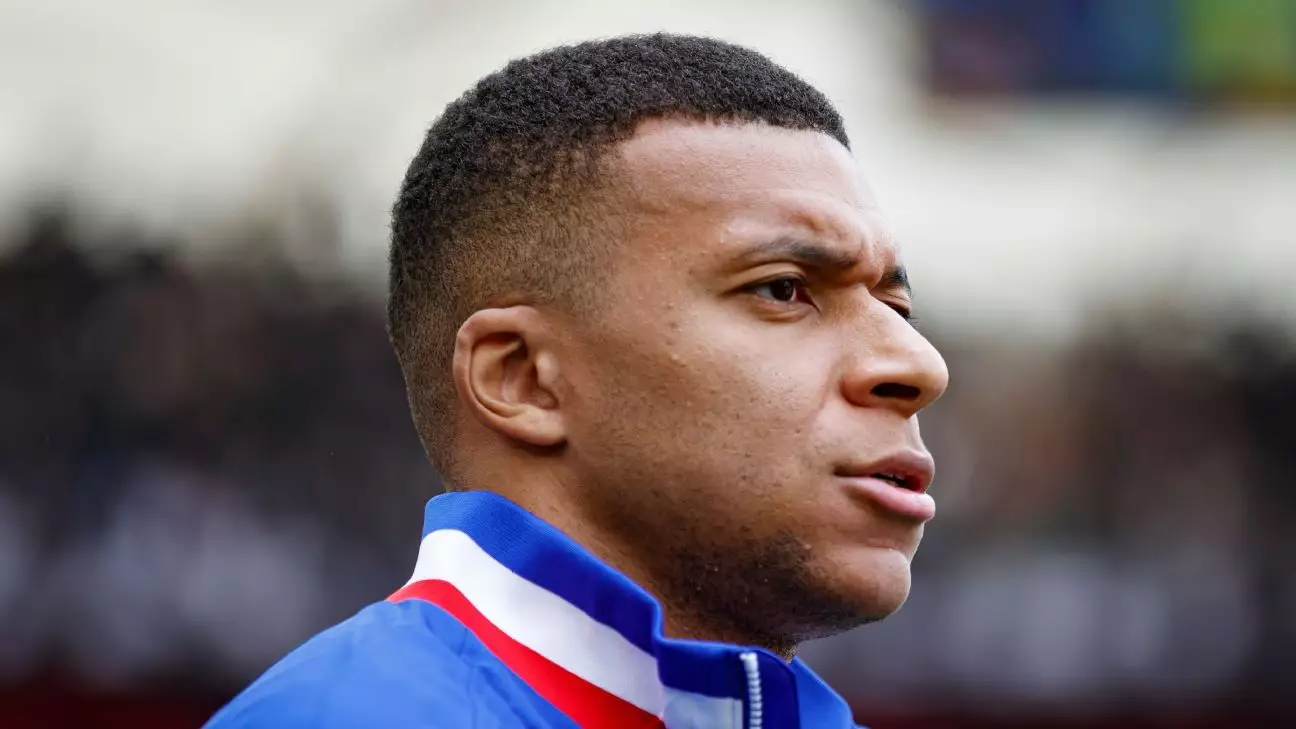Kylian Mbappé, a player whose talent has reshaped football narratives, is now embroiled in a significant legal battle with Paris Saint-Germain (PSG). Shocking as it may be for many fans, the iconic forward has accused his former club of moral harassment. Recent developments reported by the Paris prosecutor’s office reveal the complexities of what has become a tumultuous rupture between a player and a club that once celebrated his immense contributions. This shift from a celebrated star to a figure of contention raises critical questions about the ethical responsibilities of football clubs towards their players.
The Weight of Unfulfilled Promises
At the crux of Mbappé’s grievances is an alleged €55 million in unpaid wages, an eye-watering amount that underscores the financial stakes involved in professional football. But beyond the monetary dispute lies a deeper sense of betrayal. Mbappé feels let down not only by PSG’s failure to deliver on promises of securing top-tier talent but also by the treatment he received after choosing not to renew his contract. After committing to the club under the assumption that he would be part of a club ambitiously poised to challenge for European glory, the disillusionment he now faces paints a stark picture of broken trust.
The reality of lofting—a term in French football that describes isolating a player due to administrative or disciplinary reasons—adds further gravity to the situation. Following his decision not to extend his contract, Mbappé was subjected to this isolation, highlighting the often ruthless nature of club dynamics in modern football. His absence from pre-season tours and subsequent exclusion from matches sent a clear message: pursuing a vision of future success comes at a human cost.
Pursuit of Justice: Legal Actions in the Spotlight
As the situation escalated, Mbappé’s camp announced plans for legal action against PSG, signaling that this was more than just a simple contractual dispute; it goes to the heart of workplace ethics within the realm of elite football. Players, particularly those who reach the pinnacle of the sport, are still vulnerable to the harsh realities of contractual obligations and club politics. The notion that a player of Mbappé’s caliber could be treated in such a manner is both alarming and indicative of the unchecked power dynamics that exist in professional sports.
Heralded for his record of 256 goals during his seven years at PSG, his legacy there was significant but fraught with mixed emotions. Fans who once idolized him have now turned, reflecting a difficult relationship characterized by expectations and disappointments. His last game before leaving the club saw him being booed, showcasing how fan sentiment can shift dramatically when a player’s loyalty appears questionable.
The Financial and Emotional Toll of High-Stakes Transfers
Mbappé’s dramatic career choices, including rejecting a blockbuster €300 million move to Al Hilal in the Saudi Pro League, highlight the multifaceted dilemmas top athletes face. When players like Mbappé turn down offers that could secure their financial legacy, it speaks volumes about their commitment to their career aspirations and personal integrity. For him, staying at PSG amidst such turmoil and turmoil was likely a decision centered on personal pride, a quest for growth, and the challenge of overcoming obstacles.
Moreover, the broader implications of this dispute extend beyond Mbappé. It raises pressing questions about the treatment of players as assets rather than human beings with aspirations and emotions. If a player can ascend to the summit of world football only to face isolation and neglect, what does this say about the culture of the sport? Clubs must evolve to ensure they not only fulfill contractual obligations but also offer a supportive environment that champions the mental and emotional well-being of their athletes.
The Need for Reform in Player Treatment
As Kylian Mbappé embarks on this legal journey against PSG, what emerges is a narrative not just of an athlete seeking justice, but of a critical stake in the evolution of football culture. It serves as a reminder that players must advocate for their rights and wellness in environments that can often act as adversaries rather than allies. The world of sports is at a crossroads where player empowerment and ethical treatment must be prioritized to foster genuinely competitive and supportive settings for future generations of athletes. The discourse surrounding Mbappé and PSG and the legal ramifications brings to light the urgent need for reform in how clubs view and treat their players.

